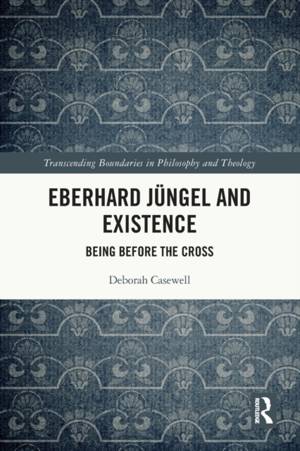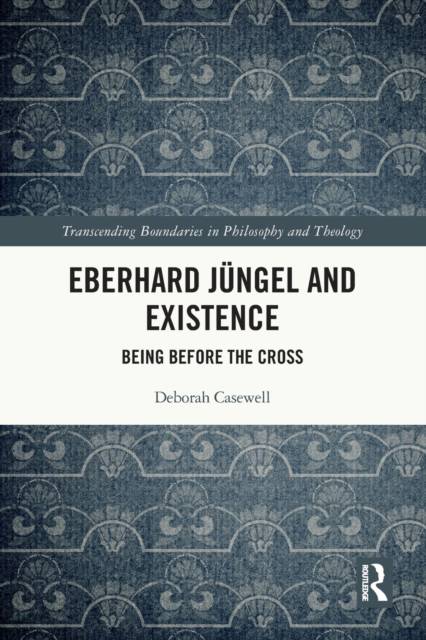
- Retrait gratuit dans votre magasin Club
- 7.000.000 titres dans notre catalogue
- Payer en toute sécurité
- Toujours un magasin près de chez vous
- Retrait gratuit dans votre magasin Club
- 7.000.0000 titres dans notre catalogue
- Payer en toute sécurité
- Toujours un magasin près de chez vous
Description
This book interrogates the contemporary Lutheran theologian Eberhard Jüngel's theological anthropology, arguing that Jüngel's thought can provide a model for theological engagement with philosophical accounts of existence. Focusing on Jüngel's theology of existence, the author explores the thought of philosophers, including Heidegger and Hegel, their influence on and application to his theology, and argues that Jüngel's account of humanity should be seen as a response to atheistic existentialist accounts of existence.
In showing how Jüngel's theology is informed by and dependent on philosophical thought, this book provides a new lens on the interplay between philosophy, theology, and religion in twentieth-century German thought. It will be of particular interest to researchers in philosophy, theology, and philosophy of religion.
Spécifications
Parties prenantes
- Auteur(s) :
- Editeur:
Contenu
- Nombre de pages :
- 190
- Langue:
- Anglais
- Collection :
Caractéristiques
- EAN:
- 9780367642112
- Date de parution :
- 09-01-23
- Format:
- Livre broché
- Format numérique:
- Trade paperback (VS)
- Dimensions :
- 156 mm x 234 mm
- Poids :
- 281 g

Les avis
Nous publions uniquement les avis qui respectent les conditions requises. Consultez nos conditions pour les avis.






